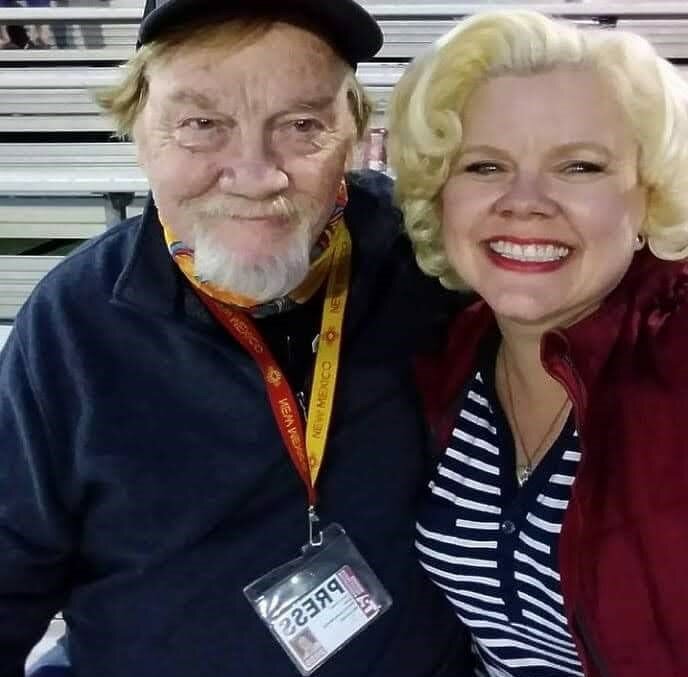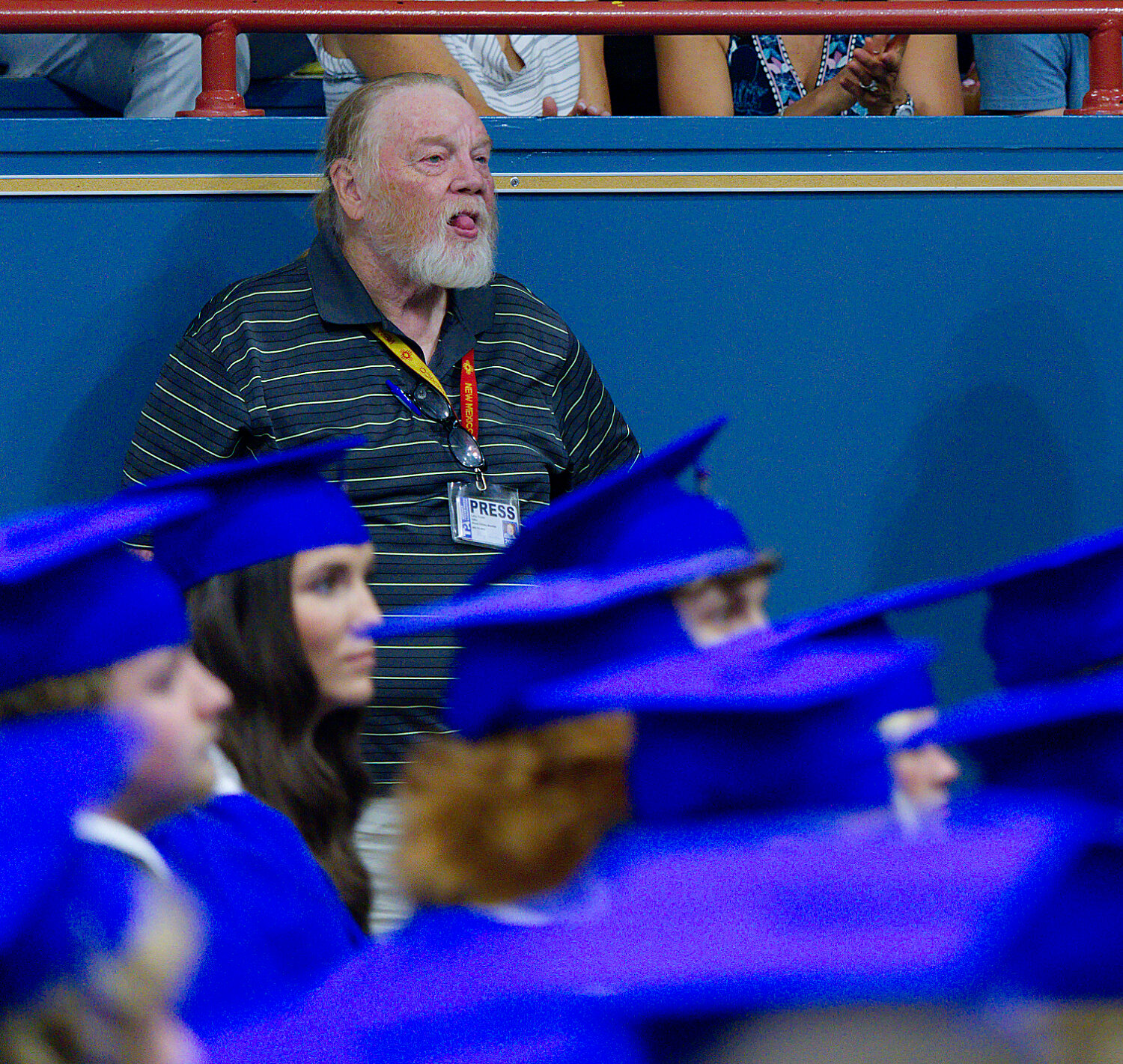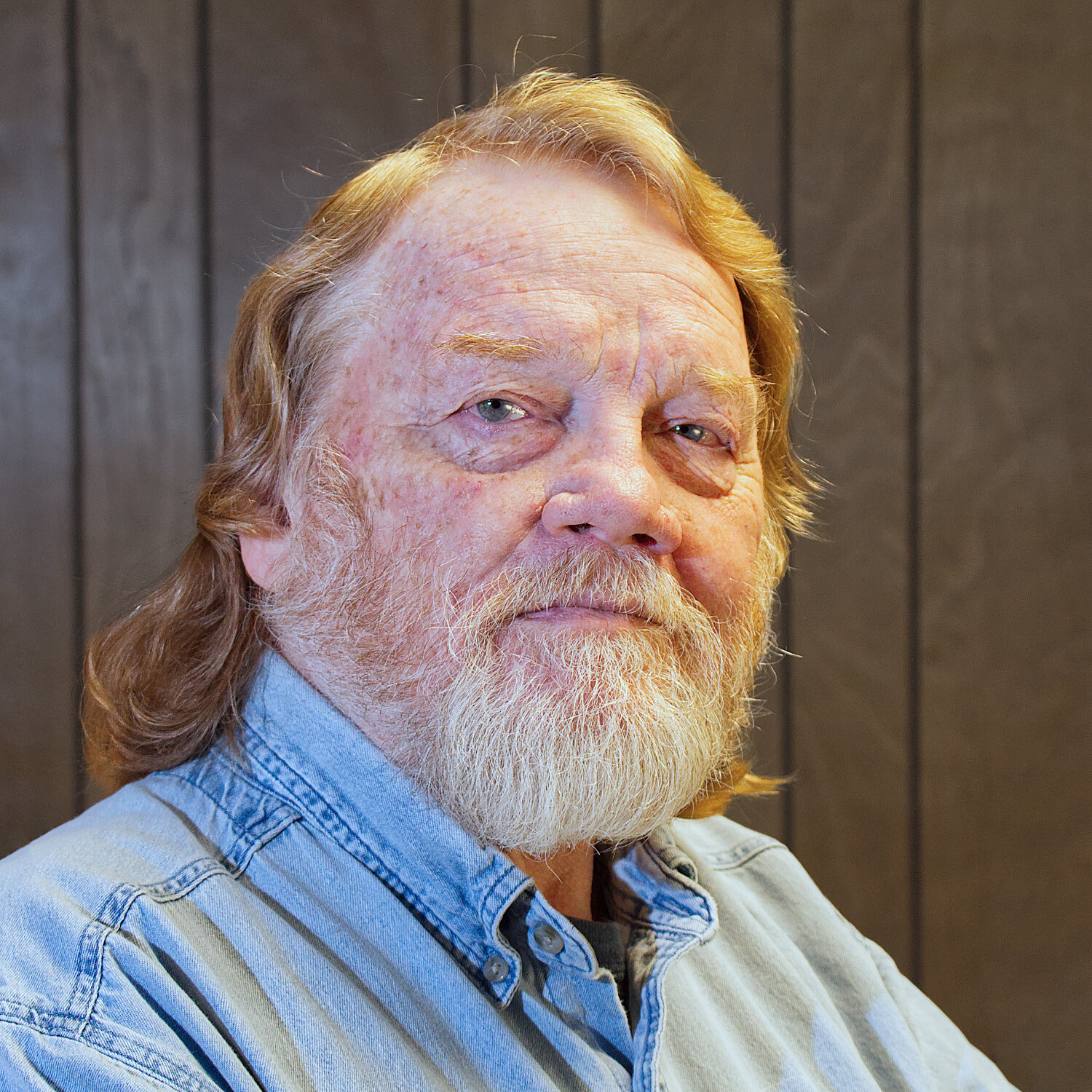Biggest Quitman, Bulldog cheerleader retiring
woodctystringer@gmail.com
A staple of the Monitor’s coverage of ‘all things Quitman,’ Larry Tucker, is retiring from the news and sports beat. As he continues to recover from some physical challenges, he graciously allowed an interview to talk about his life, his beloved Quitman, and the many friends he has made along the way.
This item is available in full to subscribers.
Attention subscribers
To continue reading, you will need to either log in to your subscriber account, below, or purchase a new subscription.
Please log in to continue |
Biggest Quitman, Bulldog cheerleader retiring
A staple of the Monitor’s coverage of ‘all things Quitman,’ Larry Tucker, is retiring from the news and sports beat. As he continues to recover from some physical challenges, he graciously allowed an interview to talk about his life, his beloved Quitman, and the many friends he has made along the way.
Larry’s connection to Quitman goes back to his great-grandfather, Eli Jackson Tucker, who made his way to Wood County in the 1880s. Like many other families, the Tuckers came to Texas via Mississippi.
What makes the Tucker lineage unique is that the family can be traced back 11 generations from Texas to Mississippi, Georgia, North Carolina, Virginia, Maryland Massachusetts and New Hampshire. The 12th patriarch of the family, William J. Tucker, made his way from England to the New Hampshire Colony in or before 1623.
It was Larry’s grandfather, George Edward Tucker, who made a name for himself in and around Wood County. A hired farm and ranch hand, he was also a skilled carpenter. His services were widely sought.
As Larry explained, “My dad said he attended 11 schools in the county.”
Clent Tucker, Larry’s father, came to graduate from Quitman High School, class of 1941. After his Army service, he and his wife, Libbie, found their way to Pleasant Grove in southeast Dallas. Clent retired as the head of security for Ford Motor Company (Dallas) when the assembly plant closed in 1977.
“He locked the door for the last time at the Ford plant,” Larry recalled.
Clent and Libbie would come to relocate back to Quitman in retirement and run a gas station for several years. Clent became manager of the Chamber of Commerce and was integral in the building of the Civic Center.
Larry graduated from W.W. Samuell High School in 1969. A life-long spinal alignment problem dashed any hopes of being an athlete – his father had played semi-professional basketball – so he sought to leverage another great influence in his life: the ministry.
“I set out to become the next Billy Graham,” he explained, “I was licensed in the Baptist Ministry since I was 17-years old.”
He ran up against the conventions of higher education in the very turbulent times of the late sixties, and began to pursue a career in teaching and coaching.
Coaching and teaching stints followed at Lancaster, W.W. Samuell and Clarksville. In 1981, through his connection with Nell French at KMOO radio, he began to do sports broadcasts of Mineola, Quitman and Grand Saline schools.
“I loved my time at KMOO,” he stated. “In addition to the sports, I was able to do a one-hour show, we called it ‘Texas Homegrown,’ which was nothing but the local Texas music scene.” Taking phoned-in requests was among his most enjoyable parts of the job. He also recalled scrambling to sell ads to fund the show with co-worker Dudley Martin.
His run in radio lasted for eight years. Some of his favorite memories were doing time-delayed broadcast of Quitman football games. This included the 1985 undefeated team which went three rounds deep in the playoffs.
The next decade would find Larry in and around Dallas, usually involved in some manner with the music industry. He worked as a country dee-jay, a free-lance writer, and provided security for top acts, including Willie Nelson.
That time in Dallas was a desperate stretch for Larry, who had to come to terms with his struggle against alcohol.
He described in detail walking into the office of Judge Lee Williams in the Wood County courthouse – with papers stacked high on the judge’s desk – and asking to be sent somewhere to recover. As Larry recounted, “Judge Williams said, ‘We can start right now’ and we knelt down on the floor of his office and prayed.”
Now on a new path, Larry moved back to Quitman and began his second stint with the Wood County Democrat.
Four years later, nurtured by the support of many friends and family in Quitman, he applied for a position at Yantis Schools.
In Larry’s words, “Quitman saved my life.” He recounted how the sincere and heart-felt support (spiritual, financial, moral) of so many people was critical in rebuilding his life. “It is one of the reasons I love this community so much, nothing is too small for them. They see a need and help where and when they can.”
For the next 16 years, he was back in the world of athletics, and he met with considerable success. In his third year at Yantis, he coached the baseball team to the playoffs. As with each stop of his story, the names just fly off of Larry’s tongue. “There were so many just great kids,” he commented.
It was also at Yantis where he met and came to know Kevin White and Harold Gilbreath. Larry considers White as fine a mentor as a man can have, while he stated that Gilbreath had forgotten more about basketball than he would ever know.
In 2006, after coaching the basketball team to the first playoff appearance in 22 years, Larry was named Grand Marshal of the Catfish Parade, a local honor.
Following seven successful years at Yantis, he coached basketball at A+ Academy, and spent four years at North Hopkins coaching girls basketball. There, he was promoted to athletic director.
In 2014, the day after retiring from coaching, he spoke on the phone with Bill Woodall, owner of the Wood County Democrat. Woodall offered him a job, to start immediately, reporting on Quitman sports. That call began a lasting stint with the Democrat and now, Wood County Monitor.
Writing had always been another tool in his kitbag. “I rewrote my research paper over a weekend for my junior high teacher, Mrs. Janet Girard,” Larry explained, “and she told me that I would probably make my way in the world with the written word.”
Since that time, Larry has been a constant at civic meetings, commissioners courts, school boards, and at just about any public event in Quitman. He explained, “I know you might just think, it’s only a meeting, but these people are my friends, who care deeply.”
Friends is a topic close to his heart. He recounted how two (since grade school, life-long friends), Bill Sanderson and Mike Smith, stay in contact with him practically every day. “They have had such an astounding effect on my life,” he noted.
There were other influences as well, most notably his parents Clent and Libbie. “They were my heroes. Dad taught me to never quit, always be honest, and face up to mistakes. Mom nurtured us with a really soft heart. My friends and family have never given up on me.”
His wife, Lorna, and children Corey, Carley, Josh and Holly, continue to provide selfless love and support. “I don’t know what I would do without them,” he admitted.
Writing for the newspaper has put Larry in the company of some amazing people. He listed his favorite interviews: Clarence Lee (kin of Robert E. Lee), Hawkins native Edwin Simmons (working with Court Appointed Advocates for Children), and Dr. Beverly Waddleton. “Dr. Waddleton is a civil rights pioneer who chose to come home to Quitman to practice and care for everyone in the community.”
Folks who spend time around Larry understand that he gives back as well. For quite some time, he would make a special circuit delivering papers to folks who otherwise might not get them. At one stage, his circuit included Mary Kay Kirbo across from the tax office, then Geneva Banks over on Lance Road, and a drop-off onto the back porch at Jane Herring’s residence.
A strong believer in the power of local newspapers, Larry considers the local paper to be the ‘last person-to-person connection’ left in media today.
He offered, “A lot of little things would be missed, if it weren’t for the newspaper.”
As he closes out his time with the Monitor, Larry requested that his thanks be passed to the community. “If it wasn’t for Quitman, I wouldn’t be alive.”











